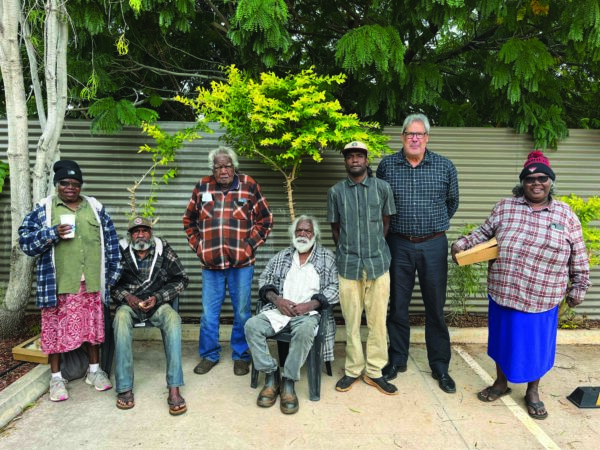
The High Court’s decision yesterday to hear an appeal about Singleton Station’s water licence is a pivotal moment for native title holders.
Fortune Agribusiness’s licence to extract 40 gigalitres of groundwater a year from Singleton Station, south of Tennant Creek, represents the largest amount of groundwater ever given away by the Northern Territory.
The Mpwerempwer [pronounced emPUrra-empurra] Aboriginal Corporation, which represents native title holders, has argued the licence will destroy too many sacred water sites and the desert region’s native plants and animals that depend on this water.
Native title holders described the High Court’s decision to hear the case as incredibly important.
“Finally, someone is listening. I am very happy. We have people living on the land and this is their dream to stay here for future generations,” native title holder Dawn Swan said.
“I am thinking of the old people. They want to know before they pass on, that the country is safe, that it is protected.
“This has been a long journey, and we will continue to fight for our sacred sites and culture,” she said.
Mpwerempwer and other affected traditional owners are also engaging in the environmental impact assessment required for the horticulture project and are working with the Central Land Council to ensure it’s a rigorous process.
“We will bring a forensic approach to understanding how Fortune Agribusiness will protect the dozens of sacred sites, hunting and gathering grounds and other important stories and places on Singleton,” CLC Chief Executive Officer Les Turner said.
Mr Turner said native title holders’ decision to pursue the case to the High Court shows that water rights are inseparable from land rights and go to the heart of protecting culture.
Native title holder Valerie Curtis said she was very excited the court would hear their story.
“It makes me feel happy. We want to fight for our rights, our sacred sites and our country, to be heard and for it to be fair,” she said.
